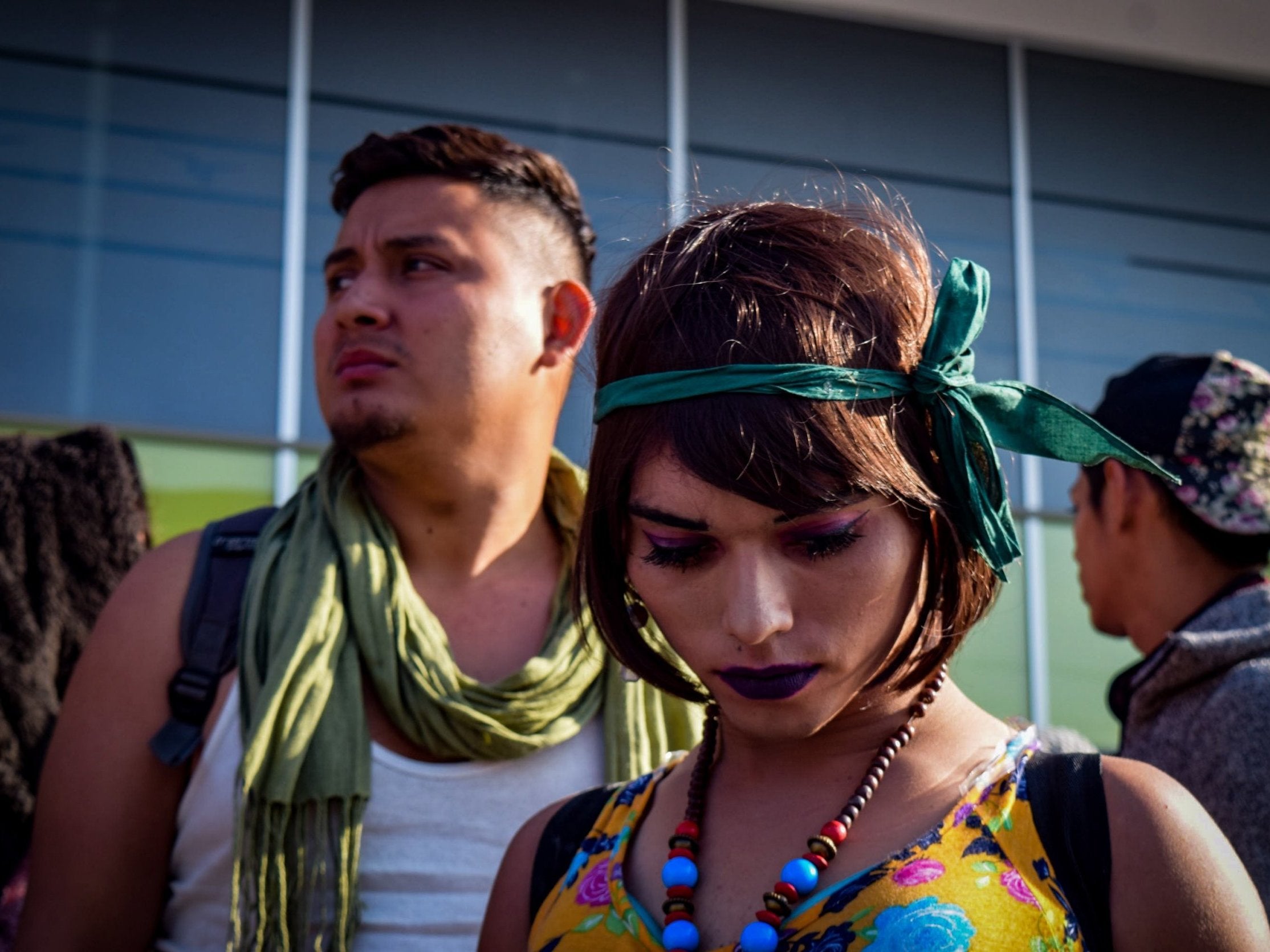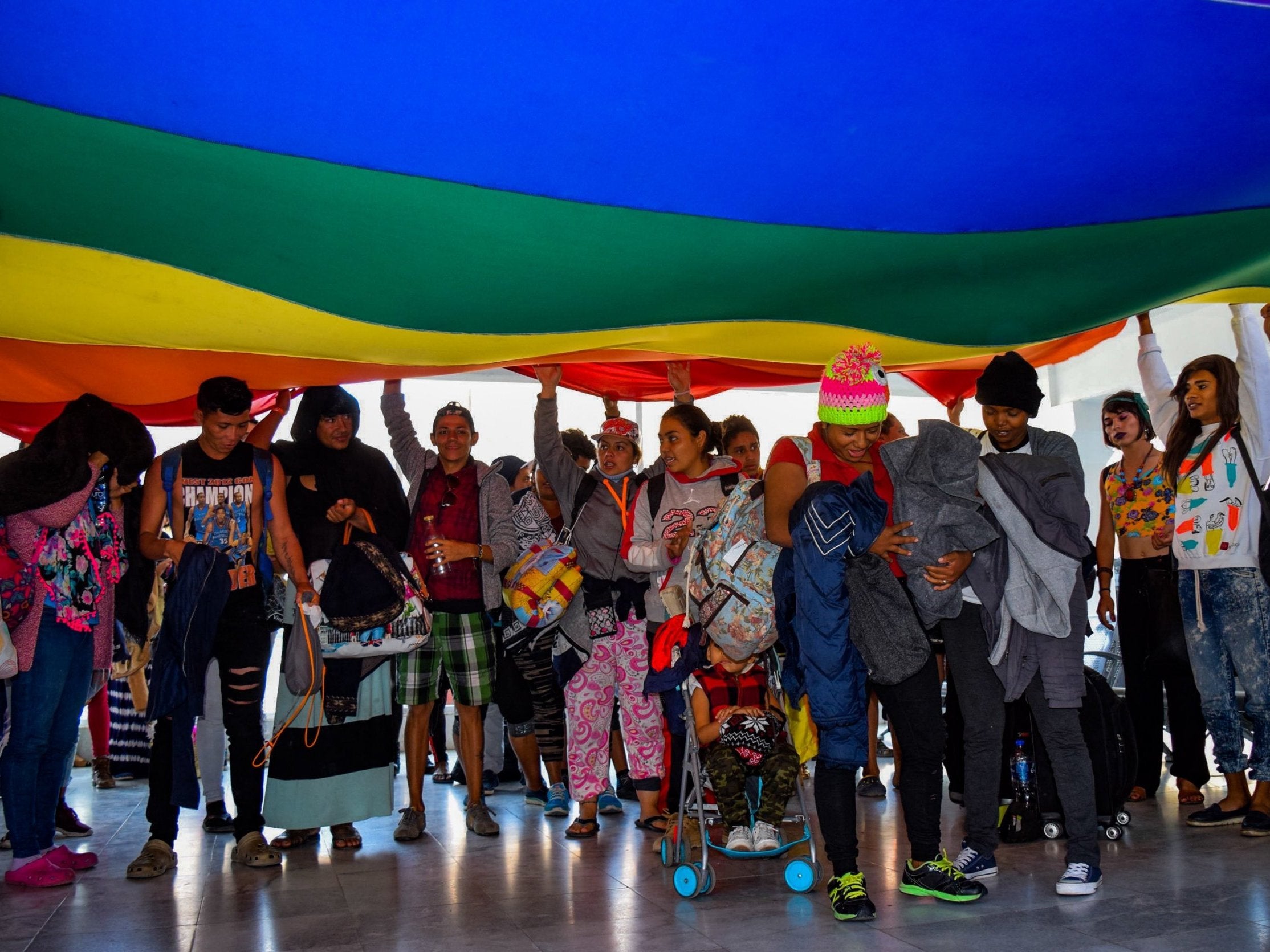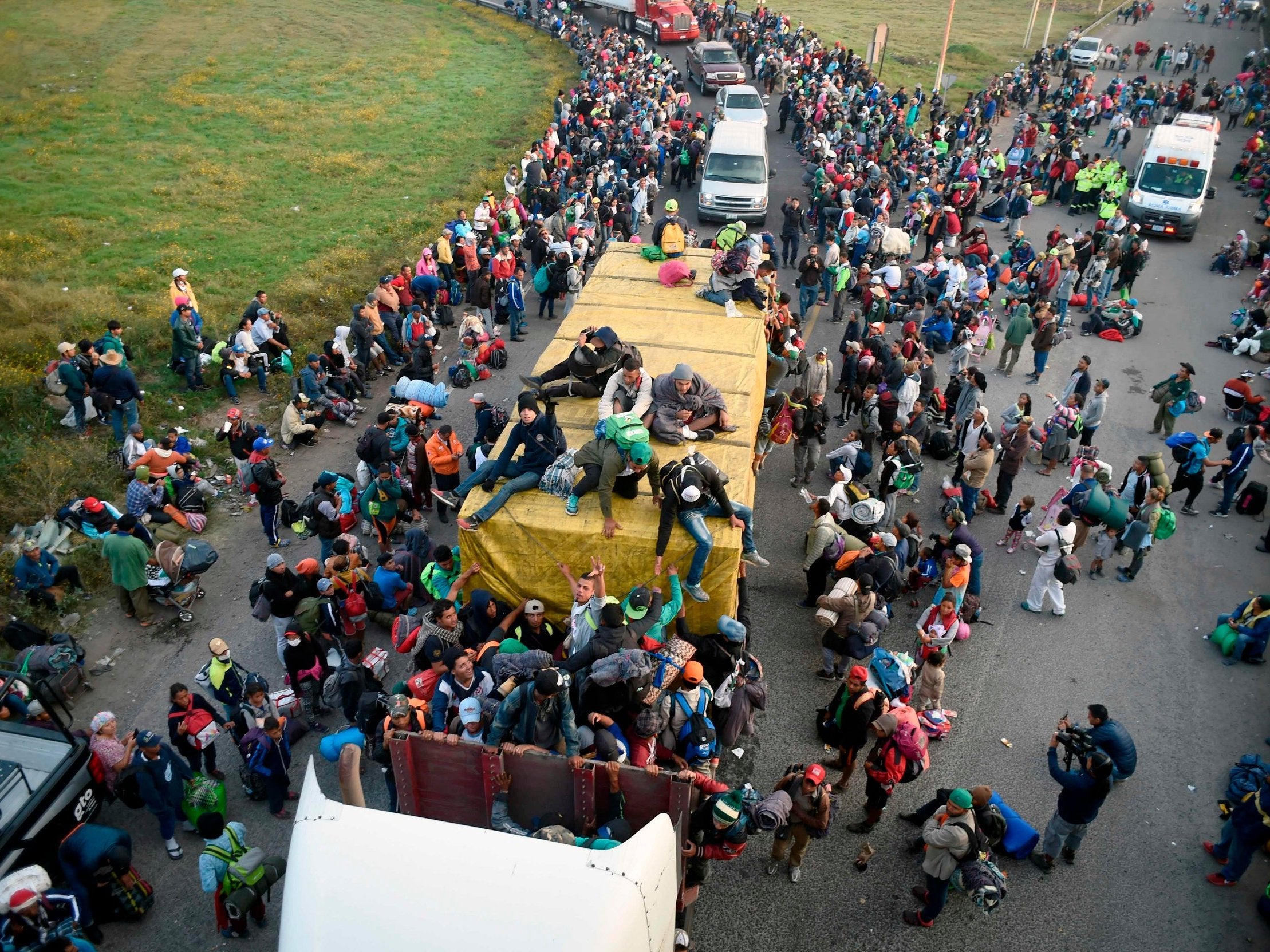LGBT+ asylum seekers are first to make it to US border and take refuge in Tijuana
Members of the group said they were 'discriminated against, even in the caravan'

Your support helps us to tell the story
From reproductive rights to climate change to Big Tech, The Independent is on the ground when the story is developing. Whether it's investigating the financials of Elon Musk's pro-Trump PAC or producing our latest documentary, 'The A Word', which shines a light on the American women fighting for reproductive rights, we know how important it is to parse out the facts from the messaging.
At such a critical moment in US history, we need reporters on the ground. Your donation allows us to keep sending journalists to speak to both sides of the story.
The Independent is trusted by Americans across the entire political spectrum. And unlike many other quality news outlets, we choose not to lock Americans out of our reporting and analysis with paywalls. We believe quality journalism should be available to everyone, paid for by those who can afford it.
Your support makes all the difference.The front line of what President Donald Trump calls a migrant "invasion" has arrived at the US border - dozens of lesbian, gay and transsexual asylum seekers from Central America.
The group has taken up shelter in a rented home in Tijuana, where they played Ariana Grande music as they sorted through donated clothes, drank strawberry-banana juice and discussed how the asylum process might play out.
"I cannot believe we actually made it here to the border," said Andy Albaringa, 23, a trans woman from El Salvador. "The trip was so tiring."
Small groups have split off from the main Central American caravan moving north through Mexico, and they are made up of people fleeing an array of dangers and difficulties: Guatemalans leaving behind poverty, Hondurans escaping gang violence, Nicaraguans running from a harsh political crackdown. The groups have also become a refuge for those persecuted because of their sexual orientation.
For them, the day-to-day strain of travelling thousands of miles by foot and hitchhiking has been compounded by occasional harassment from other travellers, according to those in this LGBT+ group who arrived in Tijuana by bus from Mexico City earlier this week.
"We were discriminated against, even in the caravan," said Erick Dubon, 23, from San Pedro Sula, Honduras, who has been travelling with his boyfriend, Pedro Nehemias, 22. "People wouldn't let us into trucks, they made us get in the back of the line for showers, they would call us ugly names."
The bulk of the caravan remains far from the border, in cities such as Guadalajara and Culiacan in western Mexico. As the first migrants trickle into Tijuana, US border authorities say they are "hardening" this crossing into San Diego "in preparation for the migrant caravan and the potential safety and security risk that it could cause."

US Customs and Border Protection said in a statement that it is closing four lanes at the San Ysidro and Otay Mesa border crossings - some of the most heavily traveled ports of entry along the US-Mexico border. The statement added that American troops were putting up concertina wire, barricades and fencing.
When a second group of 360 migrants made it to Tijuana, they were served breakfast, and then they walked towards the beach looking for a place where the group could stay. César Palencia, director of the Tijuana Municipal Migration Affairs Office, said there is shelter space for 900 in the city, although they will need more mattresses, blankets and clothes for those arriving.
Palencia said city officials are worried about the larger group of at least 3,000 they expect in the next couple of weeks.

"We are expecting more of these little groups, but we don't know right now exactly what we are going to do with the big caravan," he said. "But we will make room."
Many of the migrants plan to apply for asylum in the United States, which means waiting, perhaps for days or weeks, to be processed at a port of entry. When large groups of migrants have shown up in Tijuana in the past, such as more than 15,000 Haitians who arrived in 2016, many lived in shelters or tent camps as their claims were slowly processed, and thousands ultimately settled in Mexico. For all those who apply for asylum, only a small percentage receive it.
Last week, the Trump administration introduced new measures intended to deny asylum to those who cross the border illegally. The move was quickly challenged in court. Such a change would not affect the caravan if the migrants requested asylum at a port of entry.
The arrival in Tijuana of the LGBT+ group has not been welcomed by everyone. Santiago Alvarez, a police officer on duty outside their rental house, said that people have stopped by "knocking on the door, shouting things, telling them to leave."
"A few of the migrants left to go buy a couple of things, and they were harassed and insulted in the street," he said. "This president, Trump, this wall - it is all so ridiculous. We've had migration for years, and these people just want to get to the U.S. They just want something better."
During the previous caravan, an LGBT+ group had a difficult time during the two weeks they waited in Tijuana, according to Nicole Ramos, an immigration lawyer.
"They experienced a lot of violence, including having the shelter they were staying in robbed and set on fire," she said. "They are vulnerable."
The Washington Post
Join our commenting forum
Join thought-provoking conversations, follow other Independent readers and see their replies
Comments